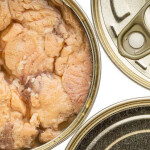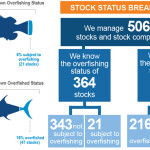Irish fisheries representatives have claimed that Norway inflated its mackerel stock data to trade quota with the U.K. in a deal that, in addition to engaging in IUU practices, doesn’t include E.U. coastal member states like Ireland.
Norway State Secretary Vidar Ulriksen, a vocal opponent of Irish criticism, retorted that the allegations are “completely unsubstantiated and incorrect,” telling SeafoodSource that the press release issued by the Irish Fish Producers Organisation (IFPO) on the topic “ignores key aspects of the discussions on the sharing of the mackerel stock.”
The deal to which both parties are referring is a U.K.-Norway agreement signed on 8 June that concerns the management of mackerel in the Northeast Atlantic Ocean, a deal which entailed Norway transferring 24,635 metric tons (MT) of its mackerel stock to the U.K. in return for access to U.K. waters to catch 165,141 MT of its mackerel quota.
The IFPO, which has felt slighted in quota share by the E.U., Norway, and the Irish government ever since Brexit and has called for actions to protect Irish waters, stated that Norway’s deal includes “irresponsible quota allocation consistent with IUU fishing practices” and demanded that the E.U. “actively oppose Norway’s setting of inflated and unilateral mackerel quotas because it impacts the long-term sustainability of this valuable European fish stock and quota.”
Norway, the IFPO claims, “trades some of this inflated quota with other countries so they can dramatically increase their catch in other parties’ waters.”
“Norway set their own mackerel quota well above the scientifically recommended limits needed to preserve stocks,” IFPO CEO Aodh O’Donnell said.
O’Donnell said Norway’s deal with the U.K. shows the former country is unable to catch sufficient mackerel in its own waters, despite its “inflated” data on stocks, with his organization stating that the bilateral arrangement “prejudices” E.U. fishing rights to mackerel.
The E.U., said O’Donnell, should use measures such as E.U. market access to secure fair coastal sharing arrangements.
“We need to reestablish responsible binding agreements to provide for the equitable sharing of fisheries resources that migrate between or occur in various economic fishing zones,” he said. “What is the point of the E.U.-U.K. Brexit arrangements under the Trade and Cooperation Agreement if the U.K. ignores our legitimate interests and fails to consult the E.U.? It’s like printing currency – Norway has used [its] self-awarded quota to pay for access to U.K. waters.”
Ulriksen described E.U. fish stock data to which the IFPO refers as scientifically unsound. He also pointed to migratory patterns to explain Norway’s data for its fish stocks and what he claims to be a natural increase in national quotas.
“Norway sets its national quotas based on the occurrence of mackerel in our waters throughout the year. Recent scientific surveys have shown a substantial change in the migration pattern and spatial distribution of the Northeast Atlantic mackerel,” he said. “There is now less mackerel in the southern and western parts of the Northeast Atlantic. The migration pattern has shifted in a northeastern direction, which means that the occurrence of mackerel in Norwegian waters has increased considerably. That goes for all life stages of the mackerel – from eggs to adults.”
Norway, according to Ulriksen, can “easily” defend the current level of its national quota, whereas E.U. member states are ...
Photo courtesy of Jan_Kuchar_Photo/Shutterstock








